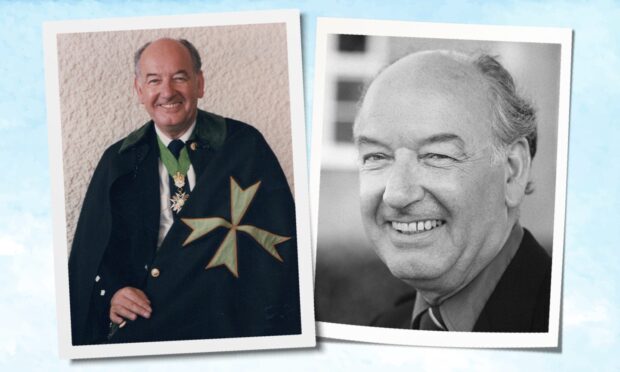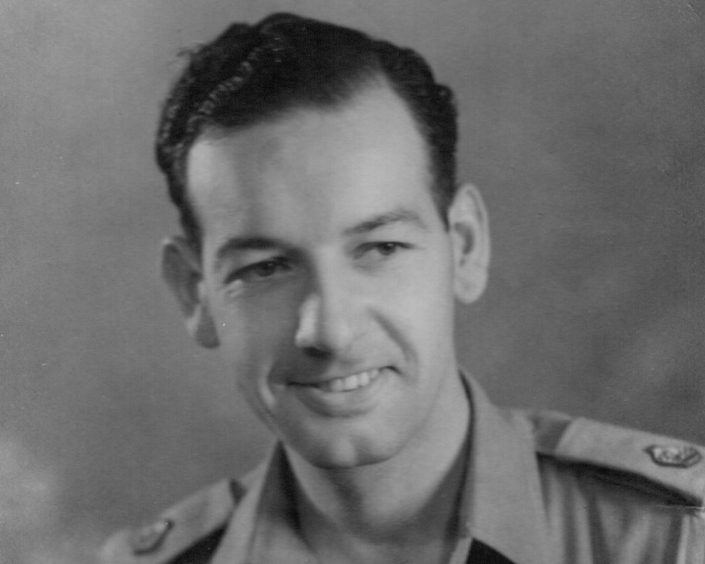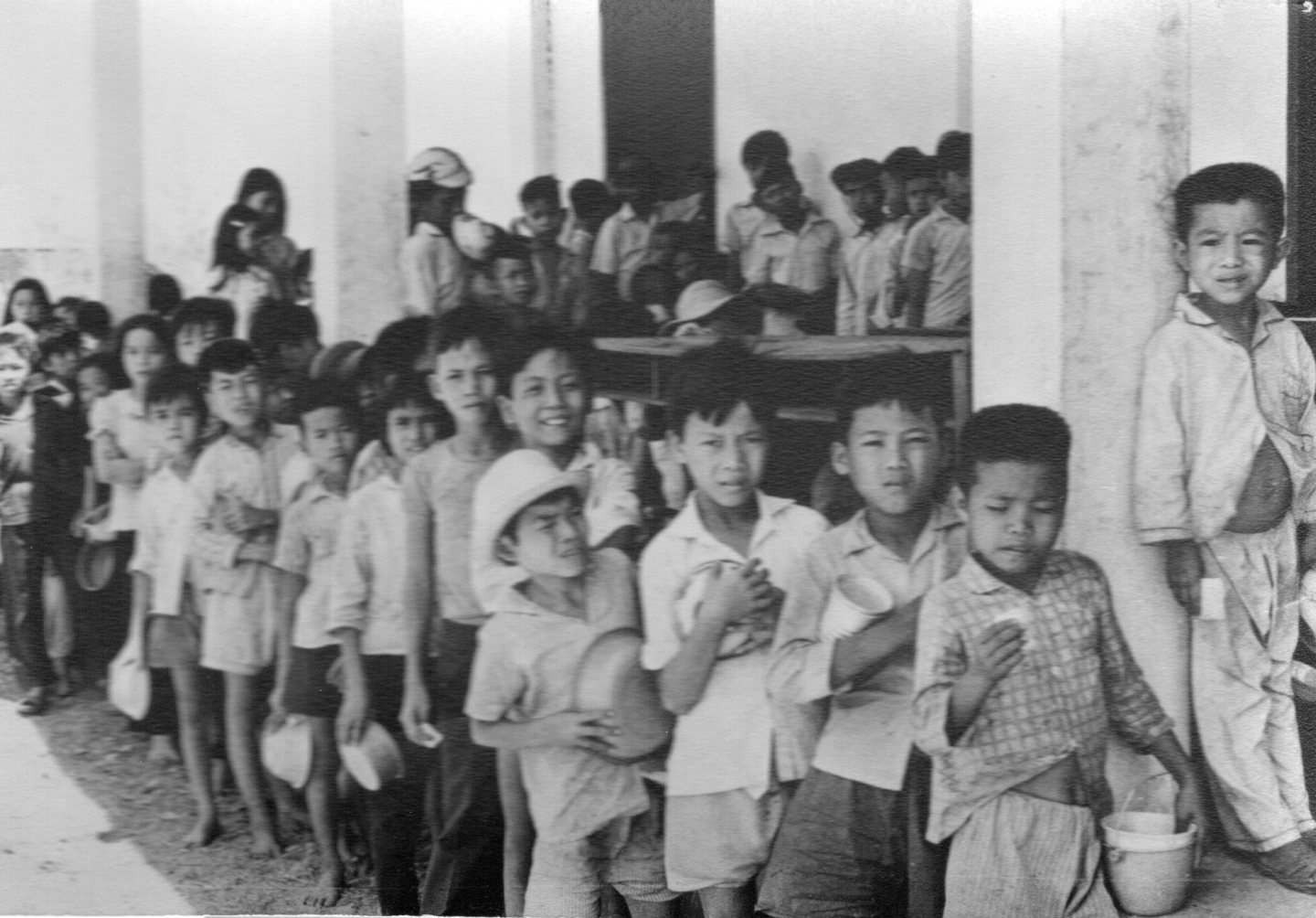James Thomson, whose pioneering work with refugees transformed the lives of hundreds of thousands of people across the world, has died aged 100.
As a senior executive of the Young Men’s Christian Association, Forfar-born James who was raised in Aberdeen, dealt with the consequences of refugee crises and famines in Africa in the 1960s and 1970s.
In 1975, he was in Vietnam when Saigon fell and escaped death when the UN compound his team was bringing relief to was shelled by the North Vietnamese.
He later returned to a senior post with the YMCA in Scotland, went on to work with the charity The Okenden Venture and became a consultant at the University of Oxford’s refugee studies programme.
James, known as Jim, and his wife Mary retired to Comrie when he was in his 70s and became heavily involved in church and community.
James Charles Bell Thomson was born on February 26 1923, the second son of John and Isabella Thomson.
Education in Aberdeen
In 1927, the family moved to Aberdeen where, on leaving school Jim did an engineering apprenticeship at Robert Gordon’s Technical College.
During this time, the Aberdeen YWCA opened St Catherine’s Club and it was there that the 18-year-old Jim met 15-year-old Mary Hendry.
At the age of 19 in 1943, he was called up for war service with The Royal Sussex Regiment and undertook infantry training before being transferred to the Royal Engineers.
Due to a shortage of officers in the expanding Indian army, Jim was sent as a second lieutenant, to the Indian Officers Training School in Bangalore and three days before he left, on November 27 1943, Jim and Mary were married. They were married 66 years and one day, until Mary’s death on November 28 2009.
He served in India for more than two years and following a four-week home leave, was deployed back to India as a major, returning home for good in April 1947.
In the next few years their family grew to four children – Margaret, Roderick, Rosemary and James.
Back in Scotland, Jim worked as an insurance agent but in 1960 saw a cinema advert for volunteers to help in youth organisations, and Jim found his calling.
He began work as YMCA youth secretary for Glasgow, running 13 centres and the quality of his work caught the attention of the organisation’s leadership.
Move to Africa
In 1965, he accepted the position as national general secretary at the Kenya YMCA and the family moved to Nairobi.
After three years, Jim was asked to travel throughout Africa, speaking to governments, national YMCAs, and regional UNHCR representatives about the extent of displaced people and those suffering from famine.
His resulting report considered how willing YMCAs would be to undertake relief work and what structures would be needed in each country to unite UNHCR, governments and national YMCAs to deliver aid.
He presented his report to the YMCA world executive committee and was then told he was to become the new world alliance African refugee secretary and would be staying on in Nairobi.
This came at a time of crisis in East Africa. Dinka people were being driven from their land in Sudan and 100,000 crossed into Uganda.
Refugee settlements
Jim pulled together expertise from agricultural colleges in Uganda and helped build settlements for the refugees which became self sufficient after 18 months.
Next he had to deal with aftermath of the violence as Rwanda fought for independence from Belgium. More than 250,000 people died in tribal violence and many more escaped to neighbouring countries.
The YMCA was asked to institute programmes of sanitation, nutrition and infant care for the 40,000 in Burundi.
In 1974 Jim was appointed YMCA executive secretary for refugees and rehabilitation based in Geneva.
Perhaps his most complex work with the YMCA took place in war-torn Vietnam, much of it caring for and nourishing street children in Saigon.
On April 29 1975, Jim and his team watched from a rooftop as the North Vietnamese army rolled through the city.
In the days that followed Jim along with Yukio Miyazaki, the former director of the YMCA in Vietnam narrowly escaped death when a UN compound where they had gone to bring food to around 300 people was shelled.
One member of the YMCA staff, who also an army intelligence officer, was captured and shot while trying to make it to the Cambodian border.
However, Jim’s negotiations with the North Vietnamese enabled the YMCA to remain as the only Western non-profit organisation providing aid and support.
After the war, Jim set about raising the funds to sustain the work of Bangkok YMCA who were dealing with an influx of Vietnamese boat people as well as those fleeing Pol Pot’s regime in Cambodia.
Family loss
Sadly, Jim’s eldest son Roderick who was working with refugees in the YMCA Sub Tuong camp in Thailand was seriously injured in a car crash in Bangladesh. Roderick had gone for a few weeks to help the Bangladesh YMCA who were working with Dalit children (untouchables). He died three months later in hospital in Switzerland.
In 1980, Jim and Mary returned to Scotland and a YMCA post but did return for a further spell in Switzerland heading global fundraising for refugee assistance.
In retirement in Comrie, Jim took up painting, joined the Probus Club and a writers’ group.
In November 2022, aged 99 Jim marched unaided in the remembrance day parade in London, carrying the YMCA wreath.
For his humanitarian work, Jim was made a knight of The Order of St Lazarus, an ancient military order.
A celebration of Jim’s life will take place at Comrie Parish Church on Saturday January 20 at 1p.m. Donations can be made to Bangkok YMCA children’s home.
You can read the family’s announcement here.



Conversation